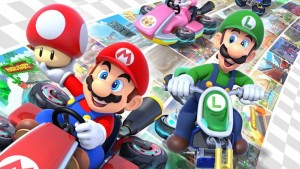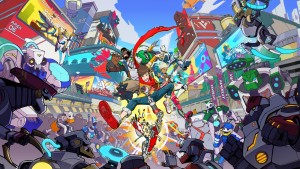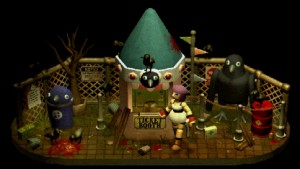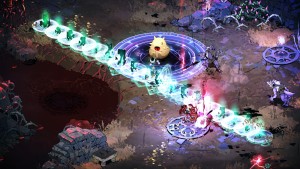Please support Game Informer. Print magazine subscriptions are less than $2 per issue
Opinion – Stop Selling Unfinished Games

A title's release day feels like a definitive moment. Development is finished and the public can experience the creators' vision. But that's more and more not the case as post-launch patches, DLC, the games-as-service model, and free updates continue to define a game after it comes out. Extending the experience – especially when it's free – is nothing to complain about, but what are we to think when the initial, release-day content itself was lacking from the start? We're seeing cases where games attempt to right launch-day wrongs by adding content later that arguably should have been there in the first place, a practice I hope doesn't continue.
To point out just a pair of examples: Star Wars Battlefront came out with 13 maps spread over four locations, leaving gamers wanting more. This foundation is being built up upon throughout this year, with two additional planets, maps, heroes, and more features. Considering the title's gameplay isn't super deep, had the maps shipped with the game to begin with it would have at least given players more to chew on instead of them quickly growing tired of the same locations.
Similarly, fellow EA game Rory McIlroy PGA Tour debuted on the next-gen systems last summer with 10 tour locations and four fantasy courses – a step down from previous games in the franchise – as well as a reduced feature set. Since then, developer EA Tiburon has added courses, golfers, and modes to help make it a more complete package. In this case, Rory shipped as a game significantly downgraded from what gamers had been accustomed to from the series. The lack of courses hampered the PGA tour, and the few modes didn't do multiplayer any favors.
Of course, I don't want to cry foul for developers trying to make a game better by adding content or seem like I expect every game to come packed-to-the-gills with every map and mode imaginable. I respect the amount of work and sacrifice that goes into any title before and after release. There are also plenty of cases where the base game contains lots of content to chew on, and stuff added after launch is gravy and is not trying to fill out what should have been there originally.
But as a consumer, in these cases it can be tough to know what I'm getting when I put down my $60 on launch day even if there are promises quickly made that new content will come later to flesh out the experience. Do I pay the money upfront with the hope that it will get better? What if I don't like the new map or whatever when it's finally announced? When everything is there on launch day, I can more accurately judge if the content is worth it. Even if I'm patient and allow the title to get better, will I even be playing it by the time some or all of the content is released? I imagine plenty of gamers play a game predominately when it first comes out and then cool on it over time. In the case of Rory and Star Wars, some of this free content being put out after the fact is coming more than six months after the game's release. By that time I'm often not playing the game, making the initial promise worth nothing.
In the case of multiplayer-focused games, jumping back into them after being gone for six months or so could yield a totally different experience – one you might not want to play – by the time the content you've been waiting for finally arrives. In that situation, you've waited to truly enjoy your game, and find out it's not what you want.
I would love it if these examples of companies adding possibly significant content after the fact are just anomalies to the otherwise normal way of releasing games chock full of material. Otherwise launch day may be filled with apprehension instead of excitement.










